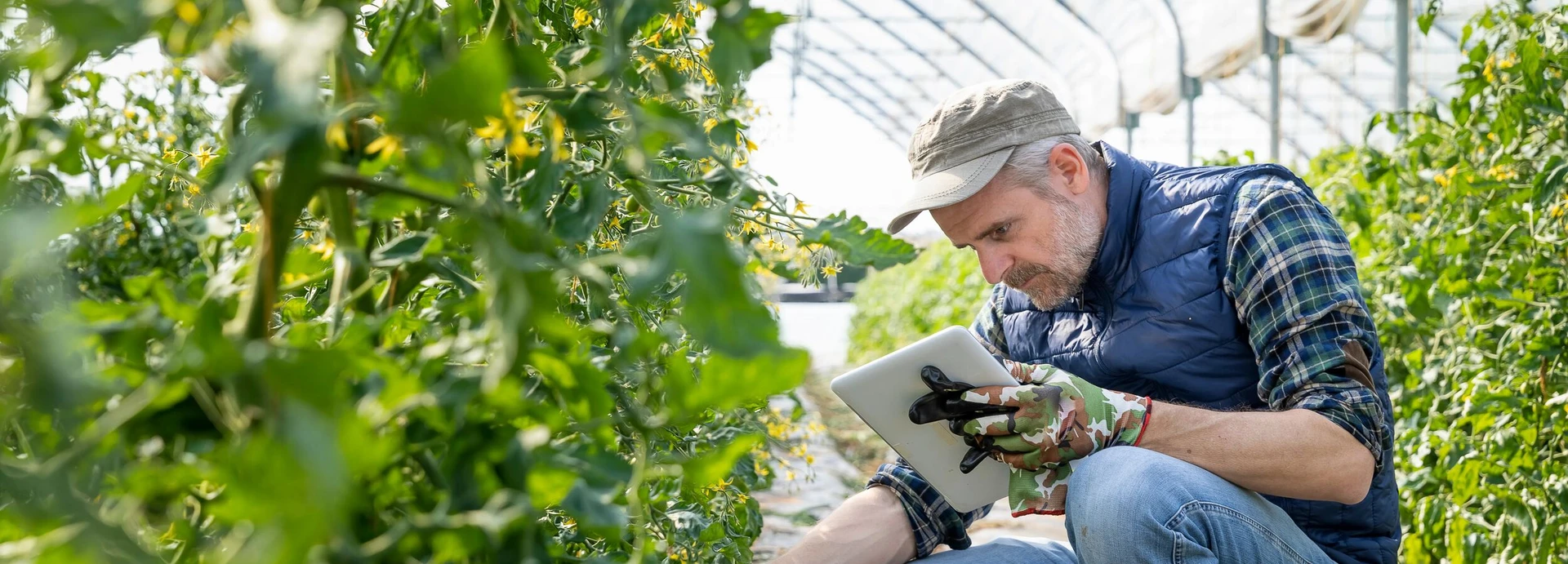
Executive MBA in Food & Agribusiness
Leadership in the Food Chain: Strategy, Innovation and Societal Impact
Start date
July 1, 2026, Campus Tilburg
January 13, 2027, Campus Tilburg
Duration
26 months
Language
English
Costs
€ 59600
Degree
Master
Accreditations
- AACSB
- AMBA
Fulltime / Parttime
Parttime
Introduction
Our world is changing at a rapid pace. The need for capable leaders with sound judgment and extraordinary insights is more urgent than ever. Decision-making is now more complex with the interests of multiple stakeholders and a variety of scenarios to consider. To become a well-rounded, responsible business leader in the Food & Agribusiness industry, you must align your career with these broader global changes and apply your knowledge to solve the world’s most pressing food & agribusiness challenges.

Our Executive MBA in Food & Agribusiness places a deep emphasis on both knowledge and career enhancement. This 2-year degree program is designed to allow you to balance your work, study and personal life. The program takes an all-around approach to encompass academic, personal and societal development. You will be prepared to become an accomplished leader both in your company and in society.
Participant profile
The Executive MBA in Food & Agribusiness from TIAS and Wageningen Academy (Wageningen University & Research) has been specially developed for mid-career professionals who aspire to become future leaders in the Food & Agribusiness sector.

Why this program
The Executive MBA Food & Agribusiness from TIAS & Wageningen Academy distinguishes itself from other part-time MBA programs through its focus on the future: innovation and development rather than “Excel sheet management,” long-term growth rather than short-term profit. Tomorrow's top managers in Food & Agribusiness start with us.
What will the program bring you?
Discover the bigger picture, influence the Food & Agribusiness industry and become a responsible leader with societal impact.
Prepare to become a future leader in Food & Agribusiness, shaping your career to grow beyond your current specialist role into a managerial capacity.
Apply what you learn directly to your organization through a practical approach and a balanced schedule that fits your lifestyle and professional commitments.
Advance your career significantly with the support of our tailored Personal Leadership Program (PLP).
Modules
Managerial Finance
You will delve into how strategic financial decisions directly contribute to the growth and value creation of your organization.
Operations and Supply Chain Management
You will focus on the strategic aspects of Operations & Supply Chain Management that determine a company's success.
LPC - Optimizing Business Performance
In the concluding Life Performance Challenge, you will demonstrate through a real-life case that you can apply everything you have learned in an integrated way in real-life situations.
Leadership Development Program
A continuous learning track of workshops and coaching that helps you deepen your self-awareness, strengthen your effectiveness in collaboration and influence, and gain greater clarity on your goals.
Managerial Accounting & Control
You will learn how to use financial information to make strategic decisions that will improve your organization's performance
:quality(90))
:quality(90))
:quality(90))